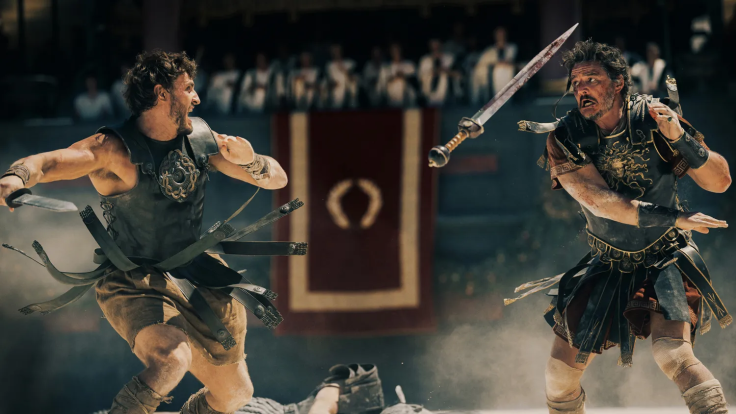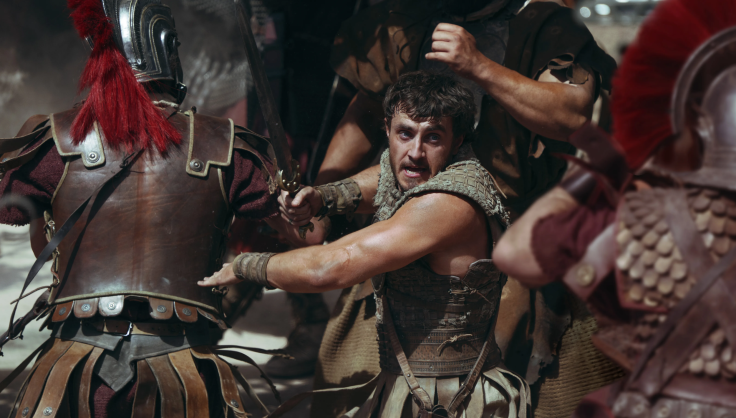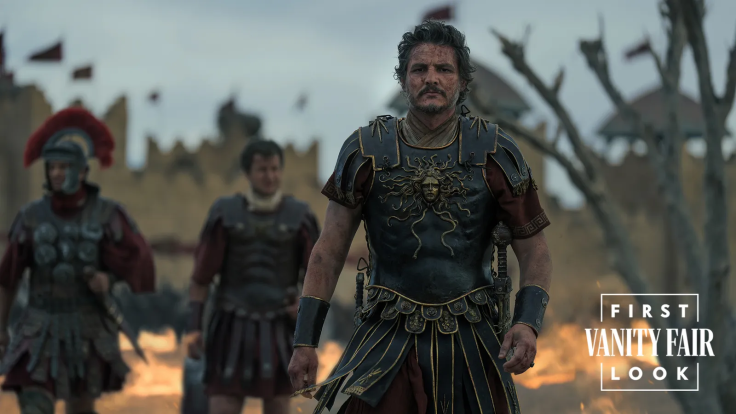
In 2000, the original 'Gladiator' became a smash hit and instant classic with quotable lines and epic fight scenes that only a master director like Sir Ridley Scott could pull off. Now, 24 years later, the release of 'Gladiator II,' with Scott back in the director's chair continues the story of these iconic characters and is already having success, even before its opening.
Many things hit the same way. Others are very different.
It's worth noting that both films came out in years of very controversial presidential elections. The 2000 election featured former Vice President Al Gore and George W. Bush, son of President George H.W. Bush, on the ticket. The results between the two were so close that the Florida Supreme Court ultimately had to decide who had won.
It's unlikely that you need a refresher on this year's election between current VP Kamala Harris and 45th (and now 47th) President Donald Trump. While the results were not as close as they were in 2000, controversies still ensued with assassination attempts and vitriolic rhetoric.
The worlds of Gladiator II and its audience
This movie takes place about fifteen years after the original film's events, with Emperor Commodus' nephew, Lucius (Paul Mescal), living in Africa as a staunch opponent of the Roman empire.
After a lost battle against the Roman army led by General Marcus Acacius (Pedro Pascal), Lucius is taken from his home in Numidia and sold as a gladiator slave to conniving businessman Macrinus (Denzel Washington) and swears revenge on Acacius, unaware that Acacius is married to his mother and Emperor Marcus Aurelius' daughter Lucilla (Connie Nielsen).
While Rome is depicted on the grand, luxurious, and epic scale one is accustomed to seeing when one thinks of the Roman Empire, it is soon made clear to the audience that it is an empire in decline.
Ruled by two unpopular and mentally unstable brothers, Emperors Geta (Joseph Quinn) and Caracalla (Fred Hechinger), the brothers are trying their best to maintain their hold on power by blindly conquering as many places as they can, much to the dismay of Acacius, who reluctantly launched the battle on Lucius' home on their orders.
The film loosely follows the plot of the first one, with both films featuring a soldier unfairly sold into slavery who wants revenge on a corrupt emperor for the death of a loved one. However, from the beginning, the differences between Lucius and the original film's protagonist, General Maximus Decimus Meridius *Russell Crowe), are made very clear.

Wanting to bring back the democratic Senate-ruled 'dream of Rome' espoused by Emperor Marcus Aurelius, a father figure and mentor to Maximus who is killed by his power-hungry son Commodus, in the first film, Lucius has grown much more bitter and resentful of the empire than Maximus.
Having run away from Rome after the events of the first film as the next potential heir to the Empire, Lucius spent his life in different lands before having to run away due to the Roman army's conquest. He calls his grandfather's 'ideals' as 'a foolish dream of an old man' and remarks in the opening battle that 'The land [the Romans] occupy is stolen.'
Mescal, who leads the film, does a great job at playing the wild lost prince who is resentful of his former kingdom. His character undoubtedly represents the sentiments of the real-life younger generation, who are less likely to long for the way of times past and want to build something new, outraged at the injustices of today.
But the actor who undoubtedly stole the show is Washington, whose charismatic, yet slimy portrayal of manipulative gladiator owner Macrinus serves as the fuel that moves the film forward. Scott describes the character as someone who earned their freedom from being a gladiator and essentially became a gangster.
The scale of the first film is intensified with the return of grand sets and wardrobe alongside aquatic battles and fights with computer-generated animals in the Colosseum. The film's opening battle between the Numidians and Romans is equally as jaw-dropping with a mix of practical and visual effects making for an awe-inspiring spectacle.
Where the film is lacking, however, is the relationships and emotional moments between the characters. Besides understanding Lucius' urge for revenge and rooting for him, the rest of the characters (besides Washington) feel flat in comparison.

The Pedro effect
The Latino actor, a massive star and a likely draw to the box office for some, is reduced to a melancholic war hero who doesn't get that much development beyond being dissatisfied with his rulers.
Pascal, who is wrapping up filming 'Fantastic Four: First Steps' with 'Gladiator II' co-star Joseph Quinn has seen a massive rise in fame over the last few years with hit projects like 'The Mandalorian' and 'The Last of Us.' So his role in the film does feel like a bit of a waste for an actor of his caliber and level of fame. However, he does get some big, emotional scenes that demonstrate his range and ability as an actor.
It seems there were lots of elements cut out of the film (one of the most controversial of these being the complete removal of Egyptian-Palestinian actress May Calamawy's scenes), that would have added more emotional weight to the grander moments in the film.
While these flaws are glaring and would serve to elevate the film to a much higher level, 'Gladiator II' is a worthy sequel to the 2000 classic that will make audiences' jaw drop and keep them entertained.
© 2025 Latin Times. All rights reserved. Do not reproduce without permission.





